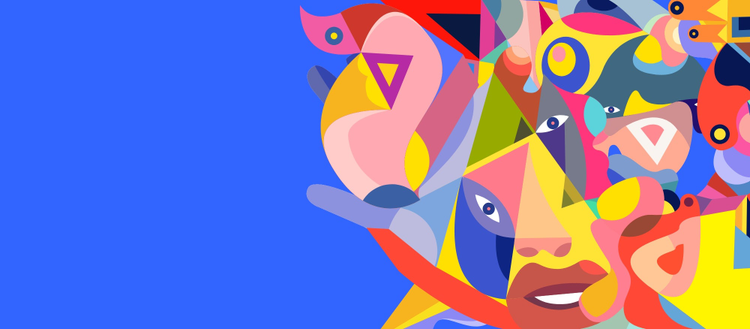Conversations that Create Change: Why diversity in TV and film matters

As part of our mission to enable Creativity for All, we’re shining a spotlight on eight creators in UK film and TV who share their perspectives on why attracting and nurturing diverse voices will create a more vibrant and inspiring industry.
The last couple of years and 2021 in particular marked a period of positive change with greater recognition of diverse talent, particularly at award ceremonies. A collective cheer went up when Daniel Kaluuya won Best Supporting Actor at the Oscars, becoming the first Black British performer to do so, while 16 of the 24 acting nominees at this year’s British Academy of Television and Arts (BAFTA) were from minority groups. Most recently, Michaela Cole became the first Black woman to win an Emmy award for outstanding writing for “I May Destroy You”, a miniseries which had so many of us across the world gripped and emotionally moved. UK media regulator Ofcom also reported an increase in the percentage of UK TV staff from minority ethnic backgrounds, from 13 to 16 percent.
However, in its “Five-Year Review: Diversity and Equal Opportunities in U.K. Broadcasting”, Ofcom delved deeper into the areas where greater change is needed, pointing out that at only seven percent, disabled representation in TV is less than half the UK 19 percent benchmark.
We believe everyone should have the opportunity to express and share their creativity. Because the more perspectives we see, the more vibrant the world becomes.
Simon Morris, senior director, marketing at Adobe explained why: “Creativity shapes our cultural norms and perceptions of what’s acceptable, and what’s possible. As part of the creative industry, film and TV play a pivotal role in empowering future and current talent. While it’s clear not everyone’s story is being told or represented, we’re committed to driving the agenda for a more inclusive film industry, and celebrating diverse voices in all realms of creativity.”
“We’re committed to supporting and celebrating diverse voices on all realms of creativity.”
Simon Morris, Senior Director of Digital Marketing at Adobe
Whilst passion, talent and insights from the stories we are sharing are a source of inspiration for many, our spotlighted talent referenced some common themes, particularly around the need for greater change.
Development assistant producer Mei Leng Yew explain in her story: “The industry is not diverse at all. Most that do make it will have come via schemes like Mama Youth or Creative Access.”
Director Abid Khan, who’s feature film Granada Nights was released this year, also spoke of the lack of Asian talent on and behind the screen and motion designer Tyrone Magnusen described a common “sense of loneliness” amongst his underrepresented colleagues that make up such a small percentage of teams. Foreshadowing the Ofcom report, Yew also talked of a “progression problem that the industry could do more about.”
There are signs of change coming, however; for actor Tommy Jessop, the first time he saw a character with Down’s syndrome on screen was in 2007, and it was himself in the BBC’s ‘Coming Down the Mountain’. Jump cut to today, and Master Control Room engineer Hayden Stevens enthuses that “the fact that CBeebies has taken on a presenter with Down’s Syndrome is massively important” for the message of inclusivity it sends.
According to award-winning film editor Lindsey Woodward, there has been a noticeable surge in women making amazing shows, a development which will create role models for future young creatives. For actor Jasmine Jobson, collaborating with other young care leavers at a theatre programme took her from troubled teenager to finding her independence.
Visual effects editor Jessica Atkinson advises those starting out their careers to build their own support networks by seeking out similarly ambitious peers.
While none of our featured creators are under any illusion that they’ve chosen the easiest path in a fiercely competitive industry, their optimism is infectious as they advocate for more diversity and share their personal stories to encourage others to preserve and pursue their dreams.
“Let your curiosity guide you. Be open, be curious, and follow your intuition.”
Tyrone Magnusen, Motion Designer
Indeed, Magnusen’s message to those thinking of embarking on a career in the media is a lesson we could probably all benefit from: “Let your curiosity guide you. Be open, be curious, and follow your intuition.”
Hear more from diverse creators at Adobe Diverse Voices and check out Adobe Premiere Pro to you bring your stories to life.